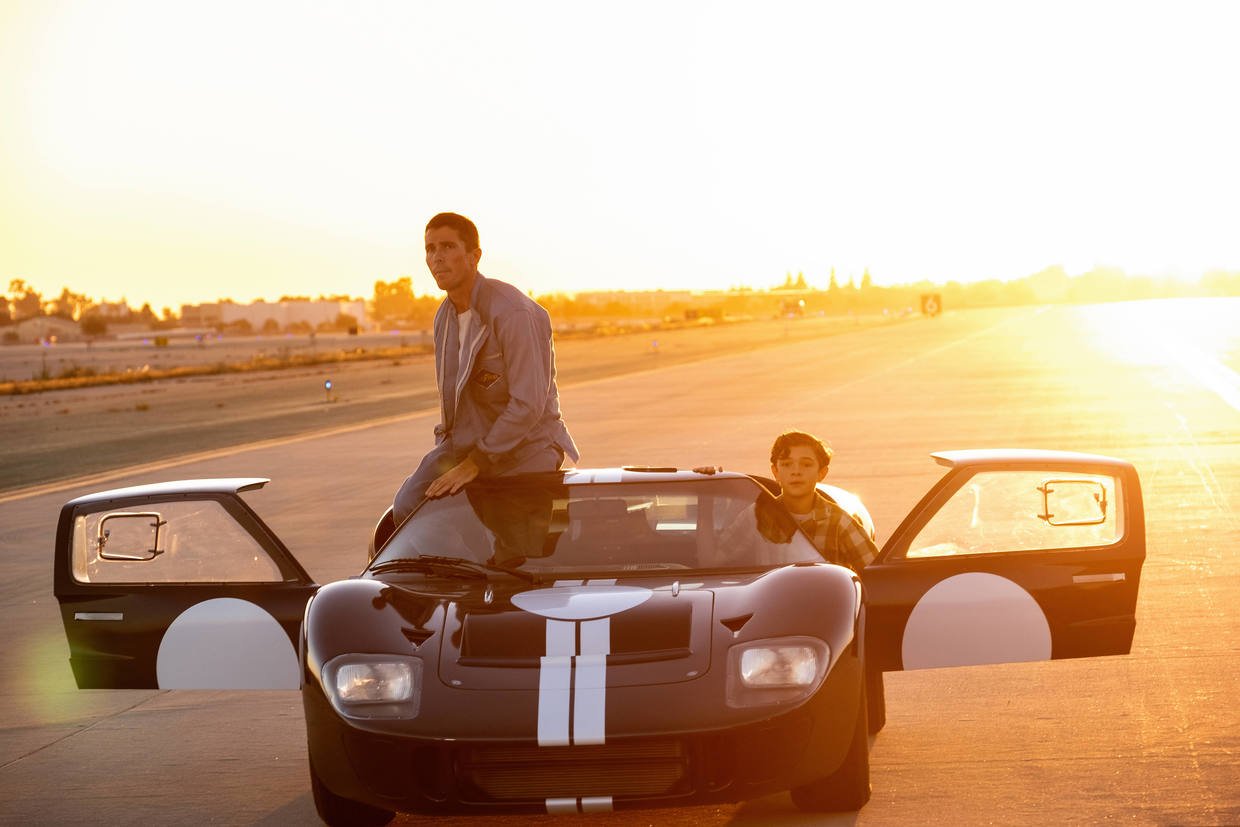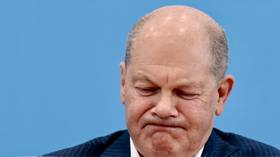‘Ford v Ferrari’: The return of masculine cinema

The historical drama ‘Ford v Ferrari’ starring Matt Damon and Christian Bale is lighting up the box office, but it really stands out because it celebrates two things Hollywood hates today: men and ambition.
‘Ford v Ferrari’ surprised just about everyone when it not only opened at the top of the US box office, but managed to blow past expectations and bring in a whopping $31.5 million. What makes such an opening surprising is that ‘Ford v Ferrari’ is not based on a comic book. It’s not a reboot or attached to any franchise or fictional universe in any way. It doesn’t even boast any shoutouts to fleeting social justice movements we always hear dropped in cringe trailers today.
Instead, it’s a film based on an incredible true story about men who dared to dream big and were willing to put in the greasy leg work that needed to be done to make their dreams reality.
Matt Damon stars as Carroll Shelby, a retired driver recruited by Henry Ford II (Tracy Letts) to win Team Ford the famous Le Mans race. Ford wants to stick it to Ferrari after an embarrassing negotiations loss.

Shelby then brings on hotheaded, but brilliant driver Ken Miles (Christian Bale) to give the team the final boost it needs. Despite the race being the ultimate challenge, both men find that their biggest obstacle may actually be getting any sort of unique thought and applications through the bureaucracy of a behemoth company like Ford.
While ‘Ford v Ferrari’ boasts some of the best racing scenes in years (maybe ever) and knockout performances from Damon and Bale, what really makes it stand out is that it feels like a script that was written 30 years ago — in all the best ways.
This is a film about ambitious men. These men yell, sometimes at each other, they break the rules, sometimes they even throw wonder bread at each other like bickering brothers. Through a different lens, this would be labeled toxic masculinity and then a female character would roll her eyes and do everything better (think of the perfectly heroic characters of ‘Captain Marvel’ or Rey from the new ‘Star Wars’ films). Heck, even Scorsese is pushing a movie about toxic masculinity today with ‘The Irishman’.
What’s ironic about this new trend is it’s dismissive of both men and women. It doesn’t see the depth and benefits to ambition and masculinity when both are applied correctly. It also dismisses women as they have been mostly relegated in mainstream fare to roles that have no arcs. Screenwriters are so scared to show a flawed female hero that we mostly get cardboard cutout protagonists that feel like they’d be played by Steven Seagal if the gender was swapped.

‘Ford v Ferrari’ ironically beat on its opening weekend the exact sort of modern movie over-influenced by trending hashtags and social agendas. The new reboot of ‘Charlie’s Angels’ opened against it and earned a measly $8.4 million. By all accounts, it should have been the victor. It was a reboot of a well-known property. The trailer featured lots of “women power” moments. Director Elizabeth Banks talked up the movie’s political and social ramifications. It’s the exact kind of content Hollywood feels safe making today. Except it didn’t work. And ‘Ford v Ferrari’, the movie no one saw coming, did.
Also on rt.com Woke Hollywood gets burned by ‘Charlie’s Angels’ box office bomb‘Ford v Ferrari’ has a pure energy that the political reboots can’t muster. It’s inspired. It’s not interested in writing a thesis on the downfalls of masculinity or giving equal screen time to absolutely every perspective and race. It has a specific story and it simply wants to tell that story. And that story is about men who represented a winner (Ford) and dared to make them even more of a winner.
Its success speaks to the fact that we just don’t see movies like this today. If there’s no political angle or social justice bent, then you’re shown the door by major Hollywood studios. Men must be dopes and women must be overequipped in every situation (‘Hustlers’, anybody?). And ambition? That’s meant to be played as pure villainy by the likes of angry, over the hill actors (see Alec Baldwin in ‘Motherless Brooklyn’, or don’t). Ambition has been replaced with characters becoming “woke” by seeing the evil in their self-serving ways. Ignored is the fact that self-service can also lead to a sort of ingenuity. This is what led to Ford getting his victory at Le Mans. It’s also what has led to most strides in human progress. “One man can stop the motor of the world,” as Ayn Rand once said. That sort of individuality is balked at in film today, especially when presented through the lens of male characters seeking victory.

If you like this new trend of rebooted material being used as a platform to score social justice points then Hollywood is making plenty for you. Enjoy it. For the rest of us, ‘Ford v Ferrari’ is more than a victory; it’s the return of masculine film to the cinemas.
By Zachary Leeman, an author and journalist who covers art and culture
The statements, views and opinions expressed in this column are solely those of the author and do not necessarily represent those of RT.














